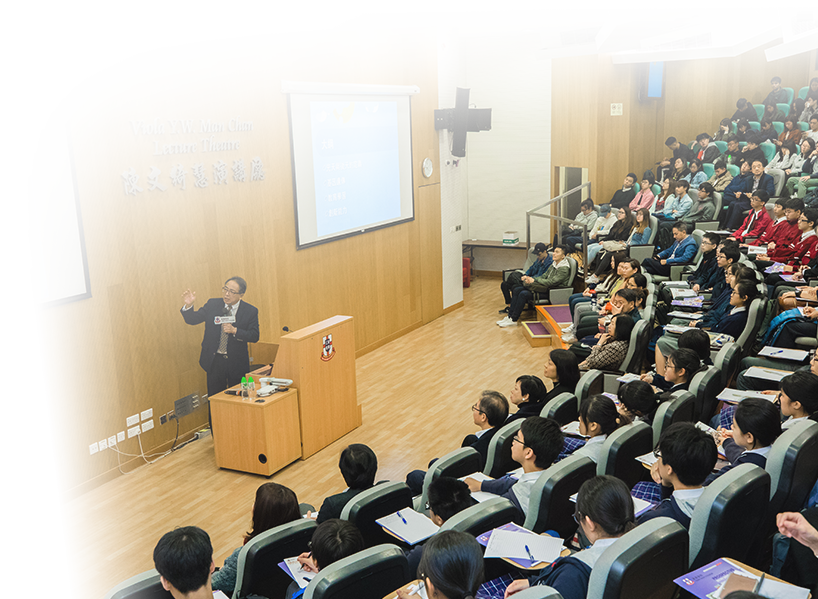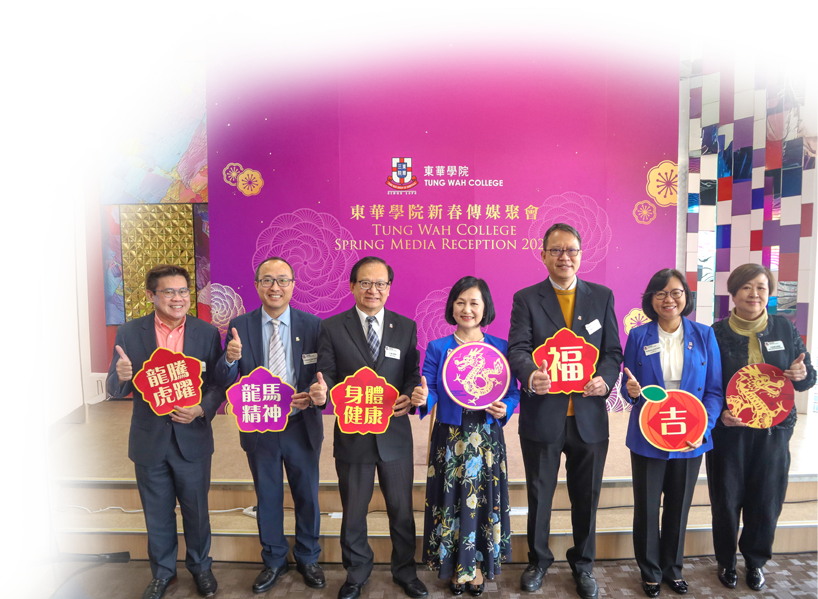About TWC

Admission

Programmes
-
Bachelor’s Degree Programmes
-
Sub Degree ProgrammesDiploma ProgrammeCertificate Programme
-
Mainland Admission

 Administration Units
Administration Units
 News & EventsDr. Michael Chih Chien KUO
News & EventsDr. Michael Chih Chien KUO Associate ProfessorOffice: Room 2201, 22/F, Cheung Chin Lan Hong Building, 98,Shantung Street, Mongkok, Hong KongTel : (852) 3468 6656Email : [email protected]Dr. Kuo received his Occupational Therapy degree from the University of Manitoba. He practiced as a clinician in the rehabilitation field in Canada and U.S.A. for 5 years before pursuing a PhD degree from the Hong Kong Polytechnic University. Dr. Kuo has taught in the same university and the Vocational Training Council. In 2014, He joined the Tung Wah College. Dr. Kuo’s main research focuses on understanding cognitive processes in normal and clinical populations using event-related potentials technique. Through a better understanding of the cognitive processes, it is hoped that this line of research would help to uncover the neural mechanisms of recovery due to clinical interventions.Academic and Professional QualificationsRegistrant, H.K. Occupational Therapists BoardRegistrant, National Board for Certification in Occupational Therapy (USA)Certificant, Canadian Association of Occupational TherapistsAuthor IdentificationsORCID ID: 0000-0002-0802-1207Scopus Author ID: 54403152900Loop Profile: 1646714Education:PhD (Rehab & Cognitive Neuroscience), Hong Kong Polytechnic UniversityMHA (Health Administration), University of British Columbia, CanadaBMR (Occupational Therapy), University of Manitoba, CanadaTeaching AreasClinical sciencesPhysical rehabilitationCognitive neurosciencesQuantitative research methodsResearch InterestsAgingHuman memoryCognitive rehabilitationBrain stimulationFunded Projects (Selected)Principle investigator (2023 – 25): FDS grant for Effects of transcranial direct current stimulation (tDCS) on cognition in older adults with mild cognitive impairment: A randomized controlled trial. (HKD $1.36M)Collaborator: Asian Charity Services grant for Mindful Music. (HKD $1.26M)Principal investigator: FDS grant for An investigation of semantic and associative encoding in schizophrenia using event-related potential technique. (HKD $748K).Publications (Selected)Sin, W.Y., Wong, W.N., Lo, Y.T.M., Tse, U.T.E., Wong, H.W.H., Tung, K.Y.E., Fung, A.D.M, Kuo, M.C.C. (2022). Cognition, Symptomatology, and Community Living Skills in Schizophrenia. Current Psychiatry Research and Reviews, 18, 220-228.Kuo, M.C.C., et al. (2021). Validation of the Cantonese version of Dementia Quality of Life Measure - Proxy in care home residents with dementia. East Asian Archives of Psychiatry, 31, 9-12.Kuo, M.C.C., et al. (2020). Computerized attention training for visually impaired elderly with dementia: A case study. Dementia & Neuropsychologia, 14, 430-433.Kuo, M.C.C. (2018). Event-related potential investigation of the mechanisms of memory encoding in Schizophrenia. Archives of Neuroscience, 5, e64776.Kuo, M.C.C. (2016). Intentional encoding in older adults: an ERP study. Archives of Neuroscience, 3, e39145.Kuo, M.C.C., et al. (2015). Memory Encoding Processes in Young and Older Adults. Archives of Neuroscience, 2, e19813.Kuo, M.C.C., Liu, K.P.Y., Ting, K.-H., & Chan, C.C.H. (2014). Age-related Effects on Perceptual and Semantic Encoding in Memory. Neuroscience, 261, 95-106.Liu, K.P.Y., Ting, K.-H., Kuo, M.C.C., & Chan, C.C.H. (2014). Case Report - Perceptual and Semantic Memory Encoding in People with Mild Cognitive Impairment. Annals of Gerontology and Geriatric Research, 1, 1015.Kuo, M.C.C., et al. (2012). Differentiation of perceptual and semantic subsequent memory effects using an orthographic paradigm. Brain Research, 1486, 82-91.Lim, M.H.X., Liu, K.P.Y., Cheung, G.S.F., Kuo, M.C.C., Li, R., & Tong, C.-Y. (2012). Effectiveness of a Multifaceted Cognitive Training Program for People with Mild Cognitive Impairment: A one-group pre- and post-test design. Hong Kong Journal of Occupational Therapy, 22, 3-8.Liu, K.P.Y., Kuo, M.C.C., Tang, K.-C., Chau, A.W.S., Ho, I.H.T., Kwok, M.P.H., et. al. (2011). Effects of age, education and gender in the Consortium to Establish a Registry for the Alzheimer’s Disease (CERAD)-Neuropsychological Assessment Battery for Cantonese-speaking Chinese Elders. International Psychogeriatrics. 23, 1575-1581.Community/ Professional Contributions (Selected)Journal reviewer for Frontiers
Associate ProfessorOffice: Room 2201, 22/F, Cheung Chin Lan Hong Building, 98,Shantung Street, Mongkok, Hong KongTel : (852) 3468 6656Email : [email protected]Dr. Kuo received his Occupational Therapy degree from the University of Manitoba. He practiced as a clinician in the rehabilitation field in Canada and U.S.A. for 5 years before pursuing a PhD degree from the Hong Kong Polytechnic University. Dr. Kuo has taught in the same university and the Vocational Training Council. In 2014, He joined the Tung Wah College. Dr. Kuo’s main research focuses on understanding cognitive processes in normal and clinical populations using event-related potentials technique. Through a better understanding of the cognitive processes, it is hoped that this line of research would help to uncover the neural mechanisms of recovery due to clinical interventions.Academic and Professional QualificationsRegistrant, H.K. Occupational Therapists BoardRegistrant, National Board for Certification in Occupational Therapy (USA)Certificant, Canadian Association of Occupational TherapistsAuthor IdentificationsORCID ID: 0000-0002-0802-1207Scopus Author ID: 54403152900Loop Profile: 1646714Education:PhD (Rehab & Cognitive Neuroscience), Hong Kong Polytechnic UniversityMHA (Health Administration), University of British Columbia, CanadaBMR (Occupational Therapy), University of Manitoba, CanadaTeaching AreasClinical sciencesPhysical rehabilitationCognitive neurosciencesQuantitative research methodsResearch InterestsAgingHuman memoryCognitive rehabilitationBrain stimulationFunded Projects (Selected)Principle investigator (2023 – 25): FDS grant for Effects of transcranial direct current stimulation (tDCS) on cognition in older adults with mild cognitive impairment: A randomized controlled trial. (HKD $1.36M)Collaborator: Asian Charity Services grant for Mindful Music. (HKD $1.26M)Principal investigator: FDS grant for An investigation of semantic and associative encoding in schizophrenia using event-related potential technique. (HKD $748K).Publications (Selected)Sin, W.Y., Wong, W.N., Lo, Y.T.M., Tse, U.T.E., Wong, H.W.H., Tung, K.Y.E., Fung, A.D.M, Kuo, M.C.C. (2022). Cognition, Symptomatology, and Community Living Skills in Schizophrenia. Current Psychiatry Research and Reviews, 18, 220-228.Kuo, M.C.C., et al. (2021). Validation of the Cantonese version of Dementia Quality of Life Measure - Proxy in care home residents with dementia. East Asian Archives of Psychiatry, 31, 9-12.Kuo, M.C.C., et al. (2020). Computerized attention training for visually impaired elderly with dementia: A case study. Dementia & Neuropsychologia, 14, 430-433.Kuo, M.C.C. (2018). Event-related potential investigation of the mechanisms of memory encoding in Schizophrenia. Archives of Neuroscience, 5, e64776.Kuo, M.C.C. (2016). Intentional encoding in older adults: an ERP study. Archives of Neuroscience, 3, e39145.Kuo, M.C.C., et al. (2015). Memory Encoding Processes in Young and Older Adults. Archives of Neuroscience, 2, e19813.Kuo, M.C.C., Liu, K.P.Y., Ting, K.-H., & Chan, C.C.H. (2014). Age-related Effects on Perceptual and Semantic Encoding in Memory. Neuroscience, 261, 95-106.Liu, K.P.Y., Ting, K.-H., Kuo, M.C.C., & Chan, C.C.H. (2014). Case Report - Perceptual and Semantic Memory Encoding in People with Mild Cognitive Impairment. Annals of Gerontology and Geriatric Research, 1, 1015.Kuo, M.C.C., et al. (2012). Differentiation of perceptual and semantic subsequent memory effects using an orthographic paradigm. Brain Research, 1486, 82-91.Lim, M.H.X., Liu, K.P.Y., Cheung, G.S.F., Kuo, M.C.C., Li, R., & Tong, C.-Y. (2012). Effectiveness of a Multifaceted Cognitive Training Program for People with Mild Cognitive Impairment: A one-group pre- and post-test design. Hong Kong Journal of Occupational Therapy, 22, 3-8.Liu, K.P.Y., Kuo, M.C.C., Tang, K.-C., Chau, A.W.S., Ho, I.H.T., Kwok, M.P.H., et. al. (2011). Effects of age, education and gender in the Consortium to Establish a Registry for the Alzheimer’s Disease (CERAD)-Neuropsychological Assessment Battery for Cantonese-speaking Chinese Elders. International Psychogeriatrics. 23, 1575-1581.Community/ Professional Contributions (Selected)Journal reviewer for Frontiers
-















